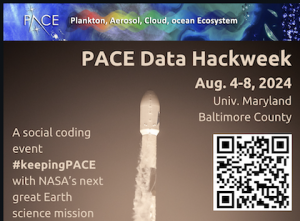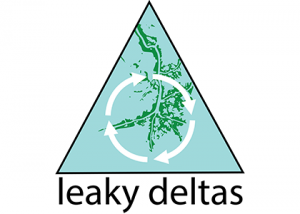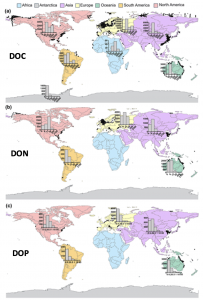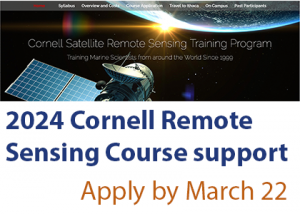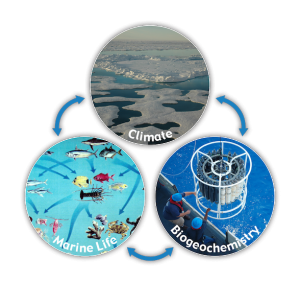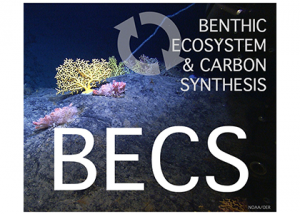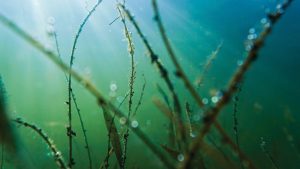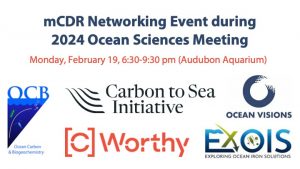This year’s OCB2024 swag will be inspired by YOU! Submit a drawing/design for an OCB t-shirt to ocb_news@whoi.edu by April 22, 2024 (Earth Day!) and we’ll have an open community vote to select the winning design. The top design will be printed on t-shirts available at OCB2024. The designs should reflect the scientific and community […]
Read MoreLearn more and apply
Read MoreScoping Workshop: Leaky deltas: sources or sinks in the global carbon cycle? March 17-20, 2025 Louisiana State Univ. (Baton Rouge, LA) Apply to attend the workshop Express your interest in this topic and sign up for email updates River deltas and the adjacent coastal ocean are critical interfaces between terrestrial and oceanic environments. Deltas are […]
Read MoreOCB is supporting an exciting new small group activity Intercomparison of metatranscriptomic methods for characterizing microbial eukaryote contributions to the biological carbon pump, which is being led by Harriet Alexander (WHOI), Natalie Cohen (UGA), Sarah Hu (TAMU), and Adrian Marchetti (UNC Chapel Hill). The goal is this working group is to determine how various methodological […]
Read More2024 Cornell Satellite Remote Sensing Training Program June 3-14, 2024 (Cornell Univ., Ithaca, NY) The Ocean Carbon & Biogeochemistry (OCB) Program will support three US-based students or postdocs to participate in this course, including tuition, housing, and a travel stipend. To apply for support, please send your 2-page CV (NSF biosketch format) and a brief […]
Read MoreGood morning. I just had a notice regarding a need for OSM24 for Student Presentation Evaluations Program (SPEP) reviewers. There are 140 students presenting in SPEP today and 87 of these presentations have no reviewers. Each session with an SPEP student has a liaison assigned to find three reviewers for these students. They have been […]
Read MoreOCB2024: June 10-13, 2024 (Woods Hole, MA) Registration will open in early April Submarine groundwater discharge (Chairs: Shaily Rahman, Kanchan Maiti, Yige Zhang) Coupled biogeochemical cycles – interconnected controls on ocean fertility (Chairs: Victoria Steck, P. Dreux Chappell, Zachary Erickson, Jessica Luo, Kristen Krumhardt, Randie Bundy) Air-sea interactions (Chairs: Rachel Stanley, David “Roo” Nicholson, Tim […]
Read MoreThere is currently considerable interest in margin processes within the oceanographic community, particularly in the closely related areas of carbon, nitrogen and iron cycling. To bring multiple investigators together, we are convening a Town Hall at the OSM 2024 Meeting in New Orleans on Monday from 12:45 to 1:45 (220-222, Second Floor). Much of the […]
Read MoreThe National Science Foundation, on behalf of the National Science and Technology Council Subcommittee on Ocean Science and Technology (SOST), requests input from all interested parties to inform the development of a National Ocean Biodiversity Strategy (Strategy), covering the genetic lineages, species, habitats, and ecosystems of United States (U.S.) ocean, coastal, and Great Lakes waters. […]
Read MoreThe Ocean Atmosphere OCB Subcommittee focuses on ocean atmosphere interactions and their role in marine biogeochemical cycles. For our mission statement, previous activities, and recently written US-SOLAS science report, see our website. Our committee meets remotely once a month to lead initiatives, plan activities, interact with international SOLAS, etc. For more details, see our charge […]
Read MoreThe Ocean Atmosphere Interaction Committee and SOLAS would like to invite everyone to the Courtyard Brewery, a location near the Ernest N. Morial Convention Center with food and drinks, on Wednesday, Feb. 21 starting at 6:30 PM. Enjoy some appetizers on us while you chat with old friends and make new ones. This is open to […]
Read MoreMarine carbon dioxide removal (mCDR) has exploded in popularity this Ocean Sciences Meeting. Are you curious and want to learn more? Are you thinking about engaging in an mCDR research project? Want to partner with industry or learn what’s happening in the environmental NGO space? Join co-hosts Ocean Carbon & Biogeochemistry (OCB), Carbon to Sea, […]
Read MoreSave the date: Thursday, February 22, 12-2 pm 2024 Ocean Sciences Meeting – Convention Center Room 224 Join Federal Program Managers to share what you think are the grand challenges facing the Biogeochemical Observing and Modeling Communities and discuss opportunities for improved connectivity between observing and modeling efforts. Biogeochemical observing networks and models are developing […]
Read More

